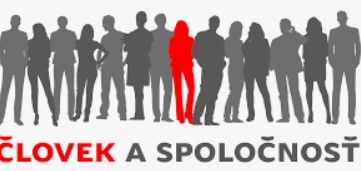Contemporary signs of magic in the everyday life of Roma minority in the selected areas of Brno, focusing on magical acts like “pokerování” and evil eye
Contemporary signs of magic in the everyday life of Roma minority in the selected areas of Brno, focusing on magical acts like “pokerování” and evil eye
Author(s): Eva FigurováSubject(s): Customs / Folklore, Culture and social structure , Ethnic Minorities Studies
Published by: Spoločenskovedný ústav SAV, Slovenská akadémia vied
Keywords: spiritual culture; evil eye; rituals; Brno; Czech Republic; servika Roma; ungrika Roma;
Summary/Abstract: Background: The results from the research presented in this article were carried out to capture the changes or eventual disappearance of phenomena of traditional Romani spiritual culture, specifically manifestations of magical thinking. This contribution aims to discuss selected manifestations of magical thinking in the Roma communities in Brno, which have not been mapped so far. These are mainly manifestations of magic that are aimed at harming individuals. Specific attention is paid to acts such as "pokerování" and evil eye "zoči". Objectives: The present article focuses on understanding how and to what extent magical practices are still used in the environment of Brno's Slovak and Hungarian Roma communities. One of the aims was to take note of the memories of those respondents about the magical practices they had encountered in the past and the related occult practices performed by Romani people in earlier times. Methods: The paper relies mainly on the collection of material obtained during field research carried out in 2019 and 2020 in Brno. The primary research method was field interviews and the research focused on the environment of the sub-ethnic groups servika and ungrika Roma. The interviews were conducted in Czech. The type of interview was chosen depending on the nature of the informants and whether they agreed to be recorded. In some cases, semi-structured interviews were used and audio recordings were always made. It was difficult to achieve complete privacy in the research and in most cases, the interviews were conducted collectively. In only two cases were we completely alone with the respondents. Given the undeniable intimacy of the topic, the “ero-epic” interview was used as an appropriate method, where we indirectly accessed the topic. In addition to interviews, the participant observation method was also used. Conclusion: The signs of magical thinking are present or not are summarised. Although it appears that magical practices are still abundantly represented in the majority, in comparison with the Slovak-Romani environment we can see their gradual disappearance. A significant factor in keeping these practices alive is by maintaining active contact with their relatives from Slovakia. It helps them continue these practices fluently and also they are able to mediate the services of a specialist from the original Slovak-Romani environment. One of the important factors of their extinction in the Czech environment is the disappearance of the original Roma specialists who have no successors. Similarly, the influence of the majority society and the rapid progress of globalisation is unquestionable.
Journal: Človek a spoločnosť
- Issue Year: 25/2022
- Issue No: 3
- Page Range: 1-9
- Page Count: 9
- Language: English

